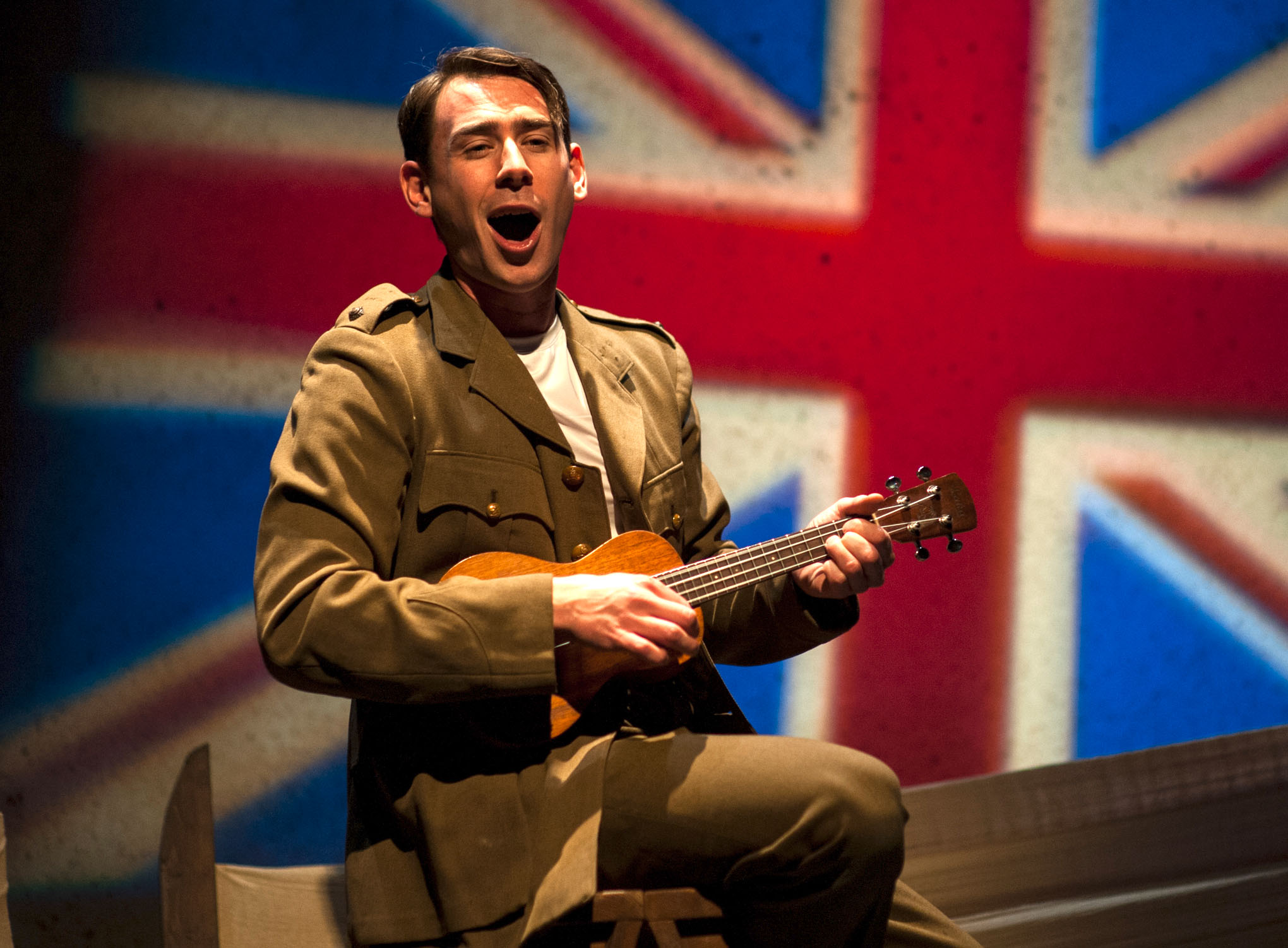It is a formidable task to create a play suitable for a family audience that nevertheless conveys something of the realities of life and death in the trenches of the First World War. Director Toby Hulse has responded to this challenge by devising a production inspired by Michael Foreman’s beautifully illustrated novella War Game, the winner of the 1993 Nestle Children’s Book Prize. This features the Christmas Day truce of 1914, when soldiers from both sides sang carols, exchanged gifts and played an impromptu game of football. Thus the idea of ‘playing’ is at the heart of this show, an idea sustained through the use of a single actor, Robin Hemmings, who tells us the story of Will, a young football-mad recruit who finally gets to ‘play for England’ on that Christmas Day. Hemmings addresses the audience directly, using songs and wonderfully vivid mime to flesh out his tale. He is ideally cast as a good-humoured village lad who learns all too soon that war is not a game, portraying Will as a naïve Everyman whose simple innocence is soon lost once he is at the front. One moment he is cheerfully displaying his talent for playing keepy uppy; in the next he is desperately wielding a bayonet with deadly effect.
Designer Susannah Henry has created a clever set that she has described as ‘a laboratory for story-telling’. There are relatively few props – there is no weaponry – and this minimalist approach gives the space great flexibility. Though Robin Hemmings is the sole actor he is not alone, for at the side of the stage sits stage manager Rebecca Marie Loxton. She creates aural pictures through the use of live sampling and looping, and sound is used very effectively throughout to convey the violence of war without dwelling explicitly on its horrors. I particularly liked the moment when the recorded sound of the audience’s cheering and clapping segued into the sound of gunfire and shell bursts, suggesting that we were all complicit in sending Will off to the trenches. The audience is encouraged to participate in other ways too, and younger members will particularly enjoy the way that Hemmings frequently engages them directly in the action. A group of ten-year-olds at the matinee performance had enthusiastically joined him in miming football skills. This is a ‘devised’ production; it was started without a script and created through teamwork, and the audience is invited to be part of that collaborative process. Children much younger than ten will perhaps find the narrative a little hard to follow at times, for there are sometimes very rapid changes of character and location. War Game tells a less emotionally harrowing story than Private Peaceful, though it still conveys a powerful sense of loss in a way that is accessible to all the family; I have seldom seen an audience with such a wide age-range as was enjoying last night’s performance. Recommended. ★★★☆☆ Mike Whitton 12/11/14


